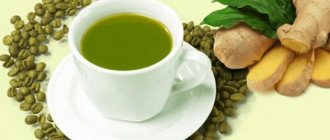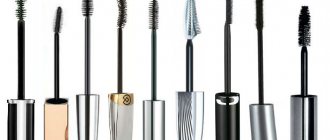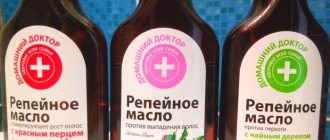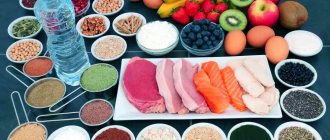December 12, 2012
How does caffeine affect the human body? How much coffee or tea a day will not cause harm? Is it possible to get poisoned by caffeine? Let's figure it out.
Caffeine is rightfully considered one of the best natural stimulants. It reduces the feeling of fatigue, increases attention and improves mood. The main sources of this substance are coffee, tea, mate and chocolate. How does caffeine affect the human body? How much coffee or tea a day will not cause harm? Is it possible to get poisoned by caffeine? Let's figure it out.
Why does caffeine “invigorate”?
First, when caffeine enters the body, it mimics the neurohormone adenosine, which slows down nerve impulses and causes drowsiness.
Caffeine blocks adenosine receptors in the brain and other organs, preventing this substance from binding to them. Thus, it suppresses relaxation, increases attention and reaction speed. Secondly, caffeine stimulates the release of the hormone adrenaline, which increases the heart rate and blood pressure, and also increases blood flow to the muscles and provokes the entry of glucose into the blood from its depot in the liver. Third, caffeine increases levels of the neurohormone dopamine in the brain. This substance is responsible for feelings of well-being and happiness. It is the feeling of vigor and lift after a good cup of coffee that causes caffeine addiction. Caffeine: where and how much
We tell you where to look for caffeine, what its content in products depends on, and how to calculate how much caffeine you consume daily.
Caffeine Web
An interesting study was conducted by Dr. Mervyn G. Hardinge at the Institute of Public Health at Loma Linda University.
Dr Hardinge studied two species of spiders using large numbers of specimens. He discovered that one of the varieties of spiders weaves a beautiful, symmetrical web of large size. This is what he used for his experiments. Very skillfully, he measured out infinitesimal doses of caffeine, which he injected into the spider’s body with a very thin needle. Each spider received a dose equivalent to two cups of coffee for an adult. Then the webs woven by these spiders were studied. They all turned out to be completely deformed. They were small in size, contained few rays, and had an ugly shape.
Before the caffeine dose, the web contained 30 to 35 concentric rings. The web, woven even 48 hours after the administration of one dose of caffeine, still remained deformed and contained only 12-13 rings. The same picture was observed after 72 hours. Only 96 hours after the injection, the size and shape of the web returned to normal.
Drugs are not a cure for fatigue. The cure is a healthy lifestyle, proper nutrition and rest.
Can caffeine help you sober up?
According to a common myth, caffeine is not only a strong tonic, but also a substance that can combat the effects of alcohol consumption. Scientists have proven that this myth is not true: it is impossible to sober up with caffeinated drinks, but it is easy to harm your body. Since caffeine creates the illusion of vivacity, and alcohol reduces attention and criticism of one’s own actions, the combination of these substances can push a drunk person to rash actions: driving a car, walking in the cold in light clothes, conflicts with others. In addition, the invigorating effect of caffeine does not allow a person to adequately assess the degree of intoxication and continue drinking alcohol. This can lead to serious poisoning.
When is caffeine safe?
For most people, a safe daily dose of caffeine is 300 mg
.
This is the equivalent of three small cups of strong coffee. However, do not forget that the level of caffeine in different types of tea, coffee and chocolate may vary. In addition, some people have increased sensitivity to caffeine. Already 100 mg
of this substance can cause unpleasant symptoms of an overdose.
The lethal dose of caffeine ranges from 10 to 20 g. However, it is quite difficult to die from caffeine abuse. To kill a person weighing about 70 kg in such a sophisticated way, you would need to treat him to 100 cups of coffee at once.
Caffeine tablets: dosage of the drug and why it is better than caffeine in drinks
Caffeine tablets may contain natural or synthetic forms of the substance.
There are two types of caffeine dosage in tablets: 100 mg and 200 mg. You can drink no more than 500 mg at a time, as more can lead to side effects.
For example, it should be indicated that the amount of the substance in question in drinks is equal to the following indicators:
- coffee (230 ml) - 80-100 mg;
- tea (230 mg) - 20-50 mg;
- energy drink (230 mg) - 40-250 mg.
To improve mental performance and increase concentration, it is more effective to drink caffeine tablets than to drink drinks containing it. This is due to higher bioavailability and precisely defined dosage of drugs. It is difficult to calculate the exact amount of caffeine, for example, in a cup of coffee, and it is also quite difficult to say how fermented a certain coffee is.
If you don’t yet know where to buy caffeine tablets, we hasten to inform you that such tablets are sold in pharmacies. But before purchasing them, you should consult your doctor, as you may have contraindications for use.
When is there too much caffeine?
The symptoms of a caffeine overdose are fairly easy to recognize. These include:
- cardiopalmus
- increased anxiety
- insomnia
- diarrhea
- frequent urination
- dizziness
- cramps in the stomach and intestines
- flushed face
- thirsty
- nausea
- headache
Symptoms of hypersensitivity to caffeine are very similar to those that occur with a caffeine overdose. Attention: they can occur when consuming products even with a small content of this substance - for example, chocolate!
Caffeineism
One of the most serious consequences of caffeine consumption is the development of a condition that is known in psychiatry as anxiety neurosis. For lack of a better name, we call this condition caffeineism.
Caffeineism is characterized by dizziness, feelings of anxiety and restlessness, periodic headaches, and insomnia. Pallor of the face, tremor of the hands, sweating of the hands and feet - all these are also symptoms of caffeineism.
Psychiatrists at Walter Reed Hospital studied this type of neurosis. They found that treating it as a mental illness was not working. But in all cases, recovery occurred quickly after eliminating caffeine from the diet.
Caffeine addiction is one of the most common diseases that doctors have to deal with today. Most often it is misdiagnosed. In my practice, I have seen one or two cases of caffeineism every day. Harvey, mentioned earlier, was one of those who refused treatment. Often patients think they need tranquilizing or sedatives. Some even ask for psychotherapy.
My treatment is brutally frank. It is not enough to reduce your consumption of caffeinated drinks. I tell patients that they should completely avoid caffeine. Coffee and all caffeine-containing drinks are harmful “to the last drop.”
Many people think that it is impossible to completely give up coffee, tea, or Coca-Cola. But once you experience the joy of feeling healthy and feel free from the constant urges, you will wonder why you didn’t end it sooner.
When you learn other components of a healthy lifestyle - diet, exercise, fresh air, water, you will understand that you do not need any drugs, any stimulants that supposedly help you maintain good health. You will feel great. And this is not an illusion. This is a genuine, wonderful, full of life reality!
What makes you sensitive to caffeine?
- With age, sensitivity to caffeine increases.
- Women are more sensitive to caffeine than men.
- Cardiovascular disease increases susceptibility to the effects of caffeine.
- Irregular caffeine consumption. The less often a person drinks drinks rich in caffeine, the more sensitive he is to this substance.
- Interaction with medications. The compatibility of the medicine with caffeine is usually written in the instructions for use.
- Reduced weight increases sensitivity to caffeine.
Affects the heart
Caffeine does affect the cardiovascular system, but for those who do not have health problems, it is completely harmless.
“If a person suffers from high blood pressure or irregular heart function, it is better for him to limit caffeine consumption,” notes Alla Pogozheva, Doctor of Medical Sciences, head of the Department of Cardiovascular Pathology at the Institute of Nutrition of the Russian Academy of Medical Sciences. “But with low blood pressure, one cup of coffee in the morning can be considered a therapeutic dose.”
Is caffeine a drug?
Caffeine is a stimulant that can be addictive
if consumed in excess on a regular basis. This substance is often called “the most popular legal drug in the world.” Abruptly stopping the consumption of caffeine-containing drinks can cause withdrawal symptoms. Generally, the more caffeine a person consumes, the higher their chances of developing unpleasant symptoms caused by the lack of caffeine. The first signs of “coffee withdrawal” begin 12-14 hours after the last cup of coffee or energy drink.
Quitting coffee: personal experience
Takzdorovo.Ru editor Snezhana Shabanova tells how to get rid of coffee addiction, and the portal’s regular author Maria Skatova shares her personal experience of giving up coffee.
How we underestimate the harm of coffee
The whole world drinks coffee. More precisely, 2 billion people in the world drink it “black”, with milk, cream, ice cream and fruit juices, adding a variety of spices: cloves, cinnamon, cardamom and even salt and black pepper.
The widespread use of coffee as a popular drink began in Vienna in 1683 and is associated with the name of the Ukrainian nobleman and Cossack Yuri-Franz Kulchitsky. A couple of years later, the first coffee shop was opened in Paris, and soon Europe was swept by a real coffee boom. In Russia, the custom of drinking coffee was introduced by Peter I, and in 1899, Swiss chemist Max Morgenthaler created instant coffee. Instant coffee came into use in the 40s of the XX century.
The cult of this drink is created for a reason. It is not only the profits of European companies that create conditions where you can drink this completely unhealthy drink at every step.
I saw an advertisement for it in Greenland, at the foot of the glacier. I have seen it advertised on the shores of South America, where the waters of Cape Horn lap against a rocky shore. It is consumed by nomads in the Sinai Desert and residents of remote villages in Tibet and China. Russia consumes millions of liters of it annually. You can see his advertisements on billboards throughout North America: from the Atlantic to the Pacific Ocean. Walking through the streets of a European city, you cannot hide from its aroma. What is this thing that is advertised all over the world?
The poison advertised is caffeine, found in coffee, tea and many cola drinks.
Many people drink caffeinated drinks because they think they refresh them and give them energy and confidence at work. The most popular drink containing caffeine is coffee.
In the West, almost every person over the age of 12 drinks coffee. More than a billion kilograms of coffee are consumed annually in the United States alone. And worldwide the total number is approaching 5 billion.
Five billion kilograms of... poison!
Moreover, of the 25 billion liters of popular soda water consumed in the United States each year, 65% contain caffeine. These caffeinated drinks are the main source of caffeine intake among teenagers.











